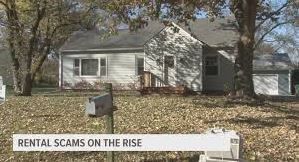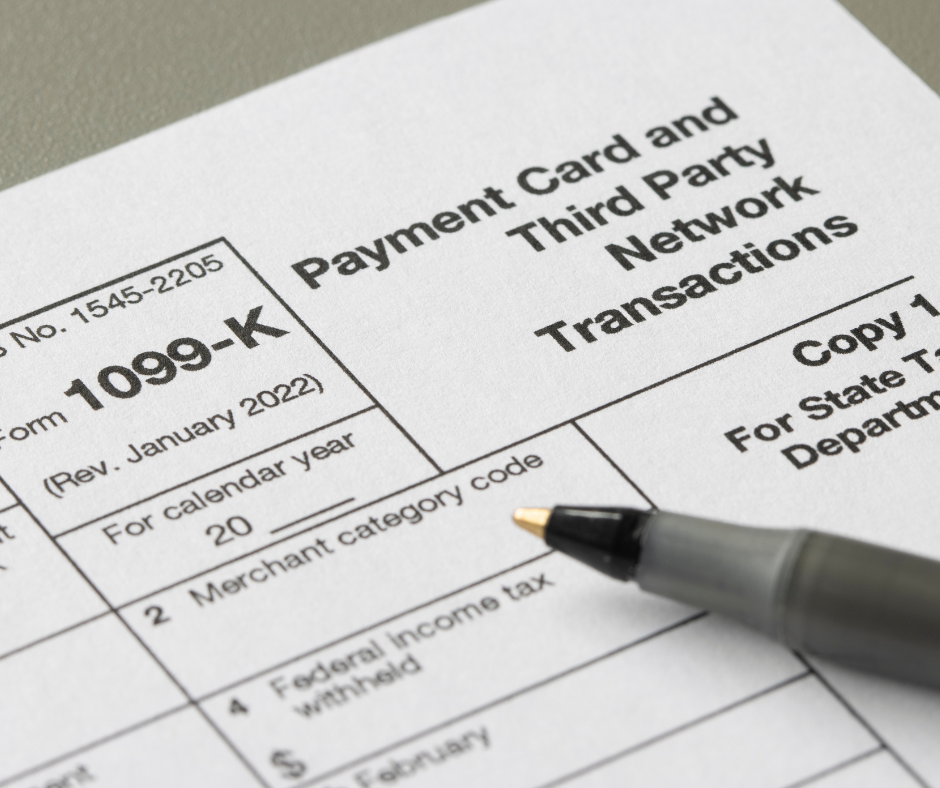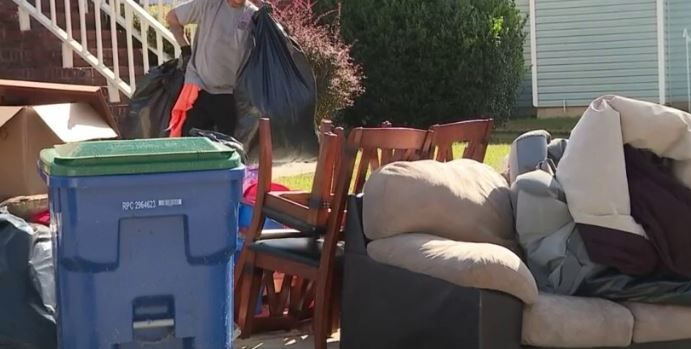BLOG

Renting a home or a condo doesn’t mean you have to give up your dream of having a garden. Whether you’re craving fresh herbs, colorful flowers, or a few homegrown vegetables, there are plenty of ways to bring greenery into your life—without making permanent changes or violating your lease agreement. With a little creativity and clear communication with your property manager, you can enjoy the joys of gardening in a rental-friendly way. Know What’s Allowed Before you start planting, it’s important to understand your rental agreement and what your landlord or property management company allows. Some rentals may permit small container gardens or balcony plants, while others may have restrictions related to structural changes, permanent fixtures, or water use. If you're unsure, ask first. Being transparent can prevent problems later and may even open the door to more flexibility if your landlord is garden-friendly. The Container Garden Solution One of the best options for renters is container gardening. Pots, planters, and raised beds that sit above the ground are ideal because they’re portable, non-permanent, and easy to maintain. They also work in nearly any setting—on balconies, patios, decks, or even inside near sunny windows. Choose containers with proper drainage and match your plant selections to the amount of sunlight your space gets. Herbs like basil, mint, and parsley do well in small pots. Cherry tomatoes, lettuce, and peppers can thrive in medium-sized containers, while flowers like marigolds and petunias add color and charm. Go Vertical If you’re short on space, think vertically. Hanging planters, wall-mounted racks, or ladder shelves can transform a small area into a lush green retreat without using ground space. There are also freestanding vertical garden systems you can buy that don’t require any permanent attachment—perfect for renters who want flexibility. Try Grow Bags and Fabric Beds Another renter-friendly gardening method is using grow bags or fabric garden beds. These soft, breathable containers are lightweight and can be placed almost anywhere. They’re ideal for vegetables and root crops like carrots or potatoes and can be stored away during the off-season. Best of all, they require no digging or soil modification to the property. Indoor Gardening Options Don’t overlook indoor gardening if outdoor space is limited or restricted. A sunny windowsill is all you need to grow herbs, microgreens, or small houseplants. You can even use hydroponic kits for low-mess indoor growing. Just be sure to protect floors or windowsills from water damage with trays or liners. Whichever gardening method you choose, always prioritize tidiness and care. Avoid damaging surfaces, keep pathways clear, and make sure excess water doesn’t leak onto patios or shared areas. Responsible gardening not only keeps your landlord happy but also creates a pleasant environment for you and your neighbors.

Maryland’s summer has been anything but dry, with frequent storms and heavy downpours becoming the new normal. With saturated soil, high humidity, and clogged gutters causing issues for homeowners across the region, now is the time to take action and protect your home from weather-related damage. Why Gutter Maintenance Matters Gutters are your home’s first line of defense against water intrusion. When they’re clogged with leaves, twigs, or debris, water overflows—causing erosion around your foundation, basement leaks, siding damage, and even roof problems. What to do now: Check and clear gutters of debris, especially after each storm. Ensure downspouts are directing water at least 3 feet away from the foundation. Inspect for sagging or disconnected sections and repair them promptly. Watch for Water Damage Around the Exterior The wet weather can also reveal (or worsen) other issues like mold, mildew, and rot—especially around wood siding, window frames, and porches. Proactive steps: Walk your property after storms to look for pooling water, soft ground, or signs of water getting into crawlspaces or basements. Touch up caulk or sealant around windows and doors. Trim back vegetation touching the house to allow airflow and prevent damp buildup. Check Drainage and Landscaping Even a well-maintained gutter system can’t do its job if your yard is improperly graded or overwhelmed by stormwater. Quick tips: Make sure your yard slopes away from the foundation. Clear debris from storm drains and yard grates. Consider adding gravel or a French drain in areas with persistent standing water. Stay Ahead of the Storm Taking these simple but important steps now can help prevent much larger (and more expensive) problems down the road. Storms aren’t done yet this summer—make sure your home is ready. Need help with your home maintenance checklist? Reach out to 1st Choice Property Management for trusted resources and guidance.

Setting the right rental price isn’t just about choosing a number—it’s a strategic decision that significantly impacts your ability to attract reliable tenants and maximize rental income. In Maryland, the average monthly rent is around $2,203. However, many landlords fall into common traps—assuming that higher rent always equals more profit or that underpricing guarantees quick occupancy. These misconceptions can lead to longer vacancies and reduced revenue. This article breaks down those myths and offers practical advice for landlords and investors in Anne Arundel County, Maryland , on how to set rental prices that align with market demand and property value. Understanding True Market Value A frequent error is assuming that matching your rental price to similar listings is enough. While it's easy to copy what others are charging, this approach overlooks your property's unique value. Before finalizing a rental rate, take into account: The property’s condition and amenities Recent improvements or renovations Desired lease term Specific demand in your neighborhood These factors help you more accurately determine your property’s value and attract tenants who are likely to pay on time and stay longer. Myth: Higher Rent Means Higher Profit It’s a common belief that a higher asking rent equals greater income—but this often backfires. Setting the price too high can scare off prospective tenants, resulting in prolonged vacancies that erode your bottom line. Instead, focus on what tenants in your area are actually willing to pay. Research the market through local listings or, better yet, consult a professional property management firm that can offer data-driven insights. Don't Rely Solely on Online Rent Calculators Online rent calculators can provide a starting point, but they often miss key property-specific and local market factors. Rental rates can vary due to: Shifts in demand Seasonal trends Neighborhood growth and infrastructure For a more accurate assessment, consider partnering with a property management company that offers investment property evaluations. Seasonality Affects Demand—Don’t Ignore It Timing matters. Many landlords overlook how seasonal trends impact rental pricing. In Anne Arundel County, MD. Spring and summer typically bring higher demand and better pricing opportunities Fall and winter often see slower leasing activity Despite Anne Arundel County's overall strong rental market—driven by high livability and consistent population growth—tweaking your pricing strategy to reflect seasonal shifts can help boost occupancy rates and minimize turnover. Price It Right to Maximize Returns Informed pricing is key to both attracting tenants and protecting your revenue. A strategic approach, grounded in market research and property specifics, leads to better financial outcomes. 1st Choice Property Management offers expert property management throughout Anne Arundel County and surrounding areas . Our licensed experts combine advanced technology with deep industry knowledge to help landlords and investors optimize their rental income.

Investing in rental properties can be one of the most rewarding ways to build long-term wealth. However, not every property is a good investment, and recognizing the difference between a smart purchase and a costly mistake is essential for landlords at every level. Whether you’re new to investing or looking to expand your portfolio, here are the top five rental property investment tips to keep in mind — plus how to recognize red flags before you buy. 1. Location, Location, Location The old saying holds true: the most important factor in real estate is location. A good rental property is in a desirable area where demand for housing remains steady. Look for neighborhoods with strong employment opportunities, access to good schools, low crime rates, and amenities like parks, shopping, and public transportation. Red Flag: If a property is located in a declining neighborhood with high vacancy rates, poor infrastructure, and limited access to jobs, it’s a sign that rental income might be unreliable — and appreciation even less likely. 2. Know the Numbers A smart investor runs the numbers before falling in love with a property. Calculate the potential return on investment (ROI), taking into account purchase price, property taxes, insurance, maintenance costs, and vacancy rates. The 1% rule (monthly rent should be at least 1% of the purchase price) can be a helpful benchmark, though market conditions vary. Red Flag: If the math doesn’t work — meaning your expenses are likely to outweigh your income, or the profit margins are razor-thin — walk away. Wishful thinking won't turn a bad deal into a good one. 3. Physical Condition of the Property A thorough property inspection is non-negotiable. Cosmetic repairs like paint or flooring are manageable, but major structural issues like foundation cracks, outdated plumbing, roofing problems, or electrical hazards can cost tens of thousands of dollars to fix. Red Flag: Properties with signs of significant deferred maintenance — such as mold, water damage, roof leaks, or outdated systems — can turn a seemingly inexpensive property into a financial sinkhole. 4. Tenant Appeal and Property Type Focus on properties that appeal to the widest range of renters. Single-family homes, townhomes, and small multifamily units in family-friendly neighborhoods are often excellent choices. Features like off-street parking, outdoor space, and updated kitchens and bathrooms can significantly boost rental desirability. Red Flag: Unique or overly customized properties (think strange layouts, unfinished additions, or highly specialized features) are often harder to rent and can leave landlords with extended vacancies. 5. Understand Local Laws and Regulations Different cities and states have different landlord-tenant laws, zoning ordinances, and rental licensing requirements. High regulatory burdens, rent control restrictions, or short-term rental bans can affect your potential profitability. Red Flag: If a property is located in an area with strict rent control, complex eviction procedures, or costly licensing requirements, it may not be worth the headache — especially for newer investors. Final Thoughts: Trust the Red Flags While no property is 100% perfect, paying attention to the red flags can save you from serious regret. A good rental property should offer strong tenant demand, favorable numbers, manageable maintenance, and compliance with local laws. On the flip side, here are three items that should instantly tell a landlord to walk away : Major unpermitted work that will require extensive correction Poor rental history (frequent evictions, long vacancies, or extremely low rents) Severe structural issues like a compromised foundation or significant pest infestation Successful real estate investing isn’t about finding the "perfect" property — it’s about finding the right property and avoiding the obvious mistakes. Stay informed, stay patient, and always perform thorough due diligence before signing on the dotted line.

If you're currently on the hunt for a new rental, here’s something you need to know: rental scams are happening more often than ever. In fact, the FBI reports a 64% increase in rental fraud over the past three years . With high demand for affordable housing, scammers are jumping in to take advantage—and they’re getting sneaky about it. At 1st Choice Property Management, we’re all about helping renters feel informed and confident during their search. So let’s break down how these scams work, what red flags to watch for, and what to do if you think you’ve been targeted. How These Scams Usually Work Rental scams typically fall into two categories: Fake Listings (aka “Phantom Rentals”) Scammers post attractive rental listings—complete with great photos and prices that seem too good to be true—but the property either doesn’t exist or isn’t actually available. Hijacked Ads In this case, the scammer copies a real rental listing but swaps out the contact info so you end up speaking with them instead of the actual property manager. In both scenarios, the scammer is trying to get your money—or worse, your personal information like your Social Security or bank account number. 6 Red Flags That Could Mean a Scam Here are some common signs a rental listing might not be legit: They Avoid Meeting in Person If the person listing the property won’t meet face-to-face or won’t show you the unit in person, be cautious. Scammers often claim they’re out of town or make excuses to avoid a physical showing. They Ask for Money Upfront Never send money—especially deposits or rent—before signing a lease and seeing the property. If they’re asking for payment first, that’s a huge red flag. The Price Seems Too Good If the rent is significantly lower than similar properties in the area, it’s likely bait. Scammers use low prices to get quick attention and rush you into sending money. The Listing Looks Off Typos, blurry photos, or images with watermarks are all signs the ad might’ve been copied from somewhere else. No Clear Address If you can’t confirm the exact location of the property, it’s a sign the listing could be fake. They’re Rushing You Scammers use urgency to pressure renters—telling you to “act fast” or risk losing the property. A legitimate landlord will take time to screen tenants properly. How to Protect Yourself You don’t have to be a detective—just take a few simple steps to protect yourself during your search: Double-check listings. Use reputable rental platforms and cross-reference listings to make sure the info lines up. Use Google Maps. Compare exterior photos in the listing with street view images online. If things don’t match, be careful. Connect directly. Talk to the landlord or property manager on the phone or video chat. Avoid doing business over text or email only. Avoid sketchy payment methods. Don’t use wire transfers or send cash. Stick to secure, trackable payment options. Protect your personal info. Only share sensitive details once you’re 100% sure the listing and landlord are legit. What to Do If You’ve Been Scammed If you think you’ve fallen for a rental scam, here are a few steps to take right away: Report it. Let the FTC and the FBI’s Internet Crime Complaint Center (IC3) know. Also report it to your local authorities. Flag the listing. Contact the website where you found the ad so they can remove it. Freeze your credit. This helps protect against identity theft if you shared personal info. Monitor your accounts. Keep an eye on your credit and bank accounts for any strange activity. Reach out to your bank or payment platform . They may be able to reverse a fraudulent transaction if you act quickly. Scammers are getting smarter, but with a little awareness and caution, you can avoid falling into their traps. At 1st Choice Property Management, we’re always here to help guide you through a safe and stress-free rental experience. Have questions or want help finding a place you can trust? Reach out to our team—we’ve got your back.

At 1st Choice Property Management, we often get asked: “What’s the difference between a tenant and an occupant?” It’s a great question—and one every landlord, property manager, or leasing agent should fully understand. Let’s break it down. Tenants vs. Occupants: The Basics The key difference is simple: tenants sign the lease , while occupants do not . Tenants are legally bound by the lease agreement. They have financial responsibility, must follow property rules, and are protected by landlord-tenant law. Occupants, on the other hand, are individuals allowed to reside in the property but without any legal or financial obligations to the landlord. Occupants can include a tenant’s family member, partner, or friend. They live in the rental unit with permission but aren’t officially part of the lease. There are two main types of occupants: Authorized Occupants : Approved by the landlord, sometimes listed in the lease. Unauthorized Occupants : Living on the property without formal approval—potentially violating lease terms. How It Affects the Lease Tenants sign the lease and agree to abide by its terms. They pay rent, follow property rules, and are liable for any damages—even those caused by an occupant. Occupants must follow the same rules , but they don’t have any contractual obligations. If an occupant causes damage, the tenant is held responsible. That’s why it’s crucial for tenants to think carefully before allowing someone to live with them. Who Pays Rent? Only tenants are legally required to pay rent. An occupant may contribute financially, but that arrangement is strictly between them and the tenant. Landlords should always collect rent from the tenant listed on the lease—not an occupant. Repairs and Requests Tenants can request maintenance or negotiate property changes. Occupants cannot. Since occupants don’t have a contractual relationship with the landlord, they live in the property “as-is.” All maintenance requests and liabilities must go through the tenant. Moving Out and Eviction Tenants must give written notice before moving out, typically 30–60 days depending on the lease. Occupants don’t have to provide any notice unless required by local laws. If an occupant refuses to leave, things can get complicated. A tenant can ask an occupant to leave, but if the occupant resists, it may become a legal issue. In some cases, the best solution for landlords is to terminate the lease, requiring both tenant and occupant to vacate. Note: Minor children are exceptions—tenants cannot evict them. Can an Occupant Become a Tenant? Yes—but only if they go through the proper application process and meet the landlord’s screening criteria. They can either be added to the current lease or sign a new one as a co-tenant. Every lease should include clear language around how long guests can stay before applying to become a tenant. Why It’s Important to Get It Right Misidentifying an occupant as a tenant—or vice versa—can lead to legal and financial issues. Only tenants are responsible for payments and lease compliance. If legal action is ever needed, landlords can only pursue those listed on the lease. That’s why it’s critical to clearly list all tenants and occupants in the lease and spell out the responsibilities of each. Whether you’re managing long-term rentals or short-term stays, defining the roles of tenants vs. occupants in your lease protects both your property and your peace of mind. At 1st Choice Property Management, we make sure every lease agreement is clear, thorough, and tailored to the needs of the property. Have questions about who should (or shouldn’t) be on your lease? We’re here to help.

According to the U.S. Department of Housing and Urban Development (HUD), there are between ten and eleven million landlords across the country. While being a landlord can be a lucrative investment, it often complicates tax filing. However, once you understand the tax requirements and establish a system for managing them, the process becomes much more manageable. So, what do landlords need to know about tax statements and 1099s? What are some common reporting challenges, and how can they be avoided? This guide provides essential landlord tax advice to ensure a seamless tax season. Understanding 1099 Forms Properly handling 1099 forms is crucial for accurate tax reporting. There are two primary types of 1099s that landlords and property managers should be familiar with: 1099-MISC : This form reports miscellaneous income, including rental payments in certain cases. 1099-NEC : This form is used for payments of $600 or more made to non-employee contractors, such as maintenance workers, electricians, and landscapers. Knowing when and how to use these forms helps landlords and property managers avoid IRS penalties. For example, if a property manager hires a contractor and pays them more than $600 in a tax year, they must issue a 1099-NEC to both the contractor and the IRS. Failing to do so can result in fines and compliance issues. Key Responsibilities for Property Managers Property managers play a crucial role in ensuring tax compliance. Their responsibilities include: Collecting W-9 Forms : Gathering W-9s from landlords and contractors early in the year is essential. These forms provide the tax identification numbers required for 1099 filings. Tracking Income and Expenses : Keeping accurate records of rental income and payments to service providers ensures smooth tax preparation. Meeting Filing Deadlines : 1099 forms must be sent to landlords and contractors by January 31st and filed with the IRS by the same deadline. Staying organized helps prevent last-minute stress and potential penalties. By handling these tasks proactively, property managers can simplify tax season for themselves and their clients. Common Tax Reporting Challenges Tax reporting isn’t always straightforward. Here are some common challenges landlords and property managers face: Missing or Incorrect Information : Errors in tax identification numbers or payment records can cause delays and compliance issues. Verifying details ahead of time prevents problems. Disorganized Records : Scrambling to find receipts and payment records at the last minute can be overwhelming. Maintaining accurate records throughout the year is essential. Changing Tax Laws : The IRS frequently updates reporting requirements, so staying informed about tax law changes is crucial. Using accounting software like QuickBooks or AppFolio can help automate tax reporting and minimize errors. The Importance of Staying Proactive Tax compliance is a fundamental part of successful property management. By understanding 1099 requirements, staying organized, and addressing common challenges early, landlords and property managers can avoid unnecessary stress. Implementing a system for record-keeping, verifying information in advance, and leveraging technology will streamline tax season and reduce errors. If managing tax statements feels overwhelming, seeking professional assistance is a smart move. Need Help With Tax Statements and 1099s? Contact 1st Choice Property Management We understand that tax reporting can be complex. At 1st Choice Property Management , our experienced team simplifies the process, ensuring compliance and accuracy. If you’re ready to make your next tax season hassle-free, contact us today!

At 1st Choice Property Management, we understand that clear and consistent communication is the foundation of a successful landlord-tenant relationship. Whether you’re a property owner or a tenant, open communication fosters trust, reduces misunderstandings, and ensures a smooth rental experience for everyone involved. Here are some key strategies to enhance communication and maintain a positive rental experience. Set Clear Expectations From the very beginning, it’s essential to establish clear expectations between landlords and tenants. A well-defined lease agreement sets the foundation for a smooth relationship by outlining responsibilities, rent payment schedules, maintenance procedures, and rules for the property. Beyond the lease, landlords should provide a welcome packet or orientation that includes important details such as contact information, emergency procedures, and guidelines for submitting maintenance requests. When tenants understand their obligations and know what to expect from the landlord, it helps prevent conflicts and promotes a stress-free rental experience. Be Responsive and Timely Timely responses are crucial for maintaining a good relationship between landlords and tenants. Whether it's a maintenance request, a question about the lease, or a concern about the property, tenants appreciate landlords who respond promptly and professionally. For landlords, addressing issues quickly not only keeps tenants satisfied but also helps prevent minor problems from turning into costly repairs. If a maintenance request cannot be resolved immediately, providing an update on the progress reassures tenants that their concerns are being taken seriously. Use Multiple Communication Channels Not all tenants prefer the same method of communication, so utilizing multiple channels can improve engagement and ensure messages are received. Common communication methods include: Email – Ideal for formal notices, lease agreements, and detailed updates. Phone Calls – Best for urgent matters or complex discussions that require immediate attention. Text Messages – Useful for quick reminders, appointment confirmations, or short updates. Property Management Portals Many landlords and property managers use online portals where tenants can submit maintenance requests, pay rent, and receive important notifications. By offering different ways to communicate, landlords can accommodate tenants’ preferences and ensure important information is effectively shared. Schedule Regular Check-Ins Regular check-ins create an opportunity for landlords and tenants to touch base and address any concerns before they become major issues. These can be as simple as a quarterly email asking if everything is going well or a scheduled property inspection to ensure the home remains in good condition. When tenants feel that their landlord is approachable and engaged, they are more likely to communicate openly and report issues before they escalate. Provide Updates on Repairs and Maintenance One of the most common frustrations for tenants is waiting for repairs without knowing when they will be completed. Keeping tenants informed about the status of maintenance requests helps alleviate stress and shows that their concerns are being addressed. If a repair is delayed due to scheduling conflicts or parts availability, sending a quick update reassures tenants that the issue is not being ignored. Transparency about timelines builds trust and helps maintain a positive relationship. Gather Feedback Regularly Encouraging tenant feedback is a great way to improve property management services. Landlords can send out surveys, ask for feedback after a repair is completed, or simply check in to see if tenants have any suggestions for improving their living experience. By actively seeking and considering tenant input, landlords demonstrate that they value their renters and are committed to providing a comfortable and well-maintained home. Strong communication between landlords and tenants leads to a better rental experience for everyone. By setting clear expectations, responding promptly, using multiple communication channels, scheduling check-ins, providing updates, and gathering feedback, landlords can build positive, long-term relationships with their tenants. At 1st Choice Property Management, we are dedicated to fostering open and effective communication to create a seamless rental experience. Whether you’re a property owner or a tenant, we’re here to support you every step of the way.

As you plan your next getaway—whether it’s lounging on a sunny beach or exploring a new city—there’s one detail often overlooked: the safety of your home while you're away. No one wants to return from a vacation to find their home has been broken into, but unfortunately, it happens every year. The good news is with a little planning and the right help, you can protect your home from any unpleasant surprises. Here are some simple tips to secure your property while you’re gone: Make Sure Everything is Locked and Secure It may seem like an obvious step, but many homeowners forget small details when locking up. From the upstairs bathroom window to the back gate, burglars are skilled at finding even the smallest openings. Make sure every entry point is secure. Protect Valuables with a Safe For your valuables or important documents, a good-quality safe is a must. Burglars won’t waste time breaking into a safe, especially if it’s hidden. For highly valuable or irreplaceable items, consider using a safety deposit box at a bank. No Spare Keys Outside Hiding a spare key under a mat or rock is a common practice, but it’s also the first place burglars will look. Instead of leaving a spare key outside, we’ll make sure all spare keys are brought inside and kept safe while you're away. Eliminate Signs of an Empty Home A full trash can or piles of mail are clear signs no one is home. We offer trash collection services and can arrange for a trusted neighbor or our team to manage your mail and trash while you're away, so your home doesn't look abandoned. Stop Mail and Newspaper Deliveries A stack of newspapers on your doorstep can be a telltale sign of an empty home. Consider stopping mail and newspaper deliveries temporarily or have someone collect them for you while you’re gone. Use Timers for Lights and Appliances To make it look like someone’s home, use automatic timers for lights and appliances. Vary the times to avoid creating a predictable pattern that could make your home an easy target. Be Cautious on Social Media It’s tempting to share vacation photos on social media, but it could tip off criminals to your absence. We recommend waiting until after you return to post those updates. Enlist the Help of a Property Manager One of the best ways to ensure your home stays safe while you’re away by hiring a property manager to check on your home regularly. At 1st Choice Property Management, we offer services like collecting mail, inspecting pipes, and maintaining your home. Our team will ensure everything is in order, keeping your home secure and well-maintained, so you can enjoy your trip with peace of mind. You deserve to have a stress-free vacation. So enjoy it! Trust us to care for your home and prioritize your best interests!






